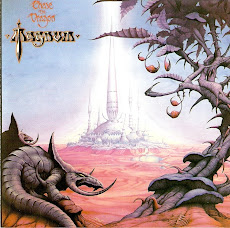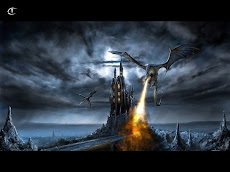
Genre: Heavy Prog
Country: UK
Format: MP3/256 Kbps
Size: 82.5 MB
Released: 1973
No password
Covers included
Source: Japan 24-Bit Remaster
The band was co-founded by keyboardist Tony Kaye after he left Yes, with David Foster. Foster had been in The
Warriors with Jon Anderson before Anderson co-founded Yes. Foster later worked with the band on Time and a Word.
Kaye had worked on a solo project by Foster that was never released.
The pair found drummer Roy Dyke, formerly of Ashton, Gardner & Dyke, and Dyke suggested Brian Parrish on guitar.
The new band signed to Atlantic Records.
Badger's first release was the live album, One Live Badger, co-produced by Jon Anderson and Geoffrey Haslam, and
was taken from a show opening for Yes. In the progressive rock genre, five of the songs were co-written by the
whole band, with a sixth by Parrish.
The early '70s marked the heyday of progressive rock — it seemed like every time you turned around and everywhere
you looked, there were top-flight bands like Yes, King Crimson, ELP, Pink Floyd, the Moody Blues, et al., all
around, and their emulators and lesser rivals spreading out as far as the eye could see. Badger was part of that
whole scene, a Yes offshoot group that managed to get signed by the same label. Officially, the group's origins go
back to 1972 and Tony Kaye's departure from Flash, the group he'd co-founded with his fellow ex-Yes alumni, guitar
ist Peter Banks. Kaye was a virtuoso who favored more traditional instruments such as the Hammond organ over the
more modern Moog synthesizer (not that he didn't play the latter, but he used the organ more prominently), and who
had the bad fortune to have been succeeded in Yes by the much flashier Rick Wakeman. This time out, he was going
to put together his own progressive rock supergroup, on a firmer footing than Flash (whose work had sometimes
strayed too close to that of Yes).
The ex-Yes keyboard player called on his longtime friend David Foster, who had managed to skirt the orbit of Yes
several times without ever being asked into that lineup (in part because his instrument was the bass, and Yes was
incredibly well covered in that department by Chris Squire). Foster had been a member of the Warriors, Yes lead
singer Jon Anderson's mid-'60s group, and had co-authored songs with Anderson on Yes' second album, Time and a Word.
Kaye had ended up working with Foster on what was ultimately to be an unreleased Foster album — when Kaye quit Yes
in 1971, he initially joined Banks in founding Flash, but after his exit from the latter, Kaye and Foster decided
to finally take the plunge. They recruited drummer Roy Dyke, lately a member of Family and, before that, Ashton,
Gardner & Dyke — he was a Liverpool veteran whose career went back to the early '60s and the Remo 4 and Brian
Epstein protege Tommy Quickly, and had played on one hit single, Ashton, Gardner & Dyke's "Resurrection Shuffle";
he, in turn, steered the organizers to Brian Parrish, an ex-member of Medicine Head and Three Man Army, who had
played with Paul Gurvitz and Mike Kellie in an outfit called Parrish & Gurvitz, who'd cut one LP for Regal
Zonophone.
The quartet, christened Badger, fit together perfectly, and after some rehearsals began building a name for itself
on a European tour opening for Black Sabbath. The band was signed by Atlantic Records, which already had Yes and
saw Badger as potentially offering another group of the same caliber. When it came time to record an album, however,
it was decided that nothing they tried in the studio was capturing the intensity and involvement they demonstrated
on-stage, and that a live album was the best way to introduce Badger. A show at the Rainbow Theatre, opening for a
now well-established Yes, was recorded, produced by Jon Anderson and Geoffrey Haslam. One Live Badger did rather
better in Europe than it did in America, though it got strong reviews everywhere. Perhaps if it had come out at
another time — and not in the same season that the first wave of progressive rock albums from ELP's Manticore label
was being released, with lots of publicity and advertising support — it might've done better, and a single might've
been a help (even Yes had needed "Roundabout" to find a mass audience). By 1974, Badger was reduced to Kaye and
Dyke, who reconstructed the group along somewhat different lines with the addition of Paul Pilnick, late of
Stealers Wheel, on lead guitar, Kim Gardner (of Ashton, Gardner & Dyke) on bass, and ex-Apple alumnus Jackie Lomax
on vocals.
In essence, it became Lomax's group, and he pushed the band away from progressive rock and into soul in a serious
way; Badger's second album, White Lady, was made up entirely of songs co-authored by Lomax, and produced in New Or
leans at Allen Toussaint's studio. The change in direction would have been difficult enough to pull off under the
best of conditions, but stability wasn't one of Badger's long suits at this date — the group had split up before
White Lady was even issued, leaving bewildered fans of both the old sound and new to ponder what had just happened.
Pilnick later returned to the orbit of Stealers Wheel's Joe Egan and Parrish went on to cut a solo album, while
Lomax signed with Capitol for two solo albums and Dyke passed through bands behind Pat Travers and jazz veteran
Chris Barber. Tony Kaye was a member of Detective and later passed through a re-formed version of Badfinger before
re-emerging with Yes in the 1980s, and even got to sing a little on the Union album. Finally, a quarter century
after it was recorded, One Live Badger was re-released on CD by Repertoire Records, as part of that label's
re-examination of the best progressive rock of the 1970s.
One Live Badger is the easier Badger album to find, and the one worth having anyway. As the album's title
indicates, the band also took the unusual step of making their first album a live recording of original songs. It
has aged very well — with all the energy of live performance, there's none of the usual studio excesses or noodling
of the era. The Yes connection via Tony Kaye is abundantly evident; the album was co-produced by Yes singer Jon
Anderson, uses long instrumental breaks and prominent Hammond organ solos, and features the obligatory Roger Dean
cover art. Nonetheless, the brooding lyrics and soulful harmonies make comparisons to Traffic and Blind Faith a
much closer musical match. The first half of the album is excellent, kicking off with the pleasingly hoarse vocals
of David Foster on the full-tilt rocker "Wheel of Fortune" and the pensive "Fountain." There's an especially tight
rhythm section underlying the restrained guitar work of "Wind of Change," combining to produce the album's best
song. But the second half of the album, with rather mopy numbers like "The Preacher," doesn't quite keep up this
momentum.
Songs / Tracks Listing
1. Wheel Of Fortune (7:04)
2. Fountain (7:12)
3. Wind Of Change (7:00)
4. River (7:00)
5. The Preacher (3:35)
6. On The Way Home (7:10)
Total Time: 39:01
- Roy Dyke / drums
- Dave Foster / bass, vocals
- Tony Kaye / keyboards, Mellotron
- Brian Parrish / electric guitar, vocals
Enjoy! :)



